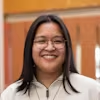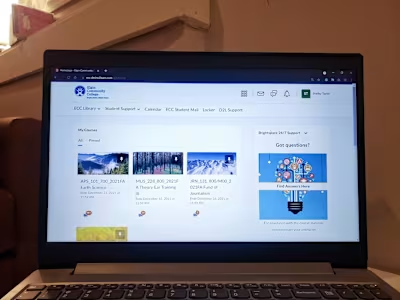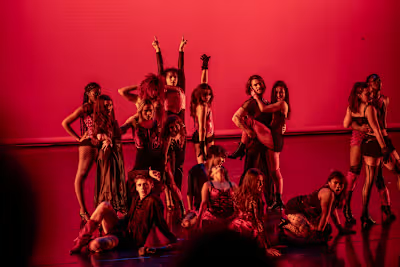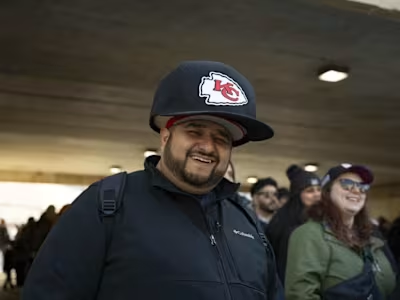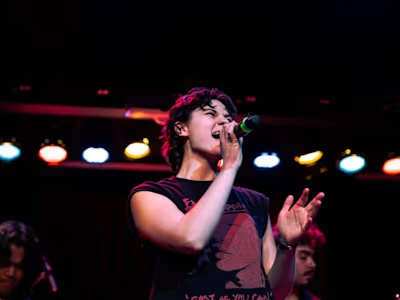ECC staff share their stories in honor of Filipino American His…
Like this project
Posted Mar 13, 2024
Elgin Community College staff values diversity and seeks to celebrate all cultures.
Likes
0
Views
3
Tags
ECC staff share their stories in honor of Filipino American History Month
By Maya Liquigan
October 22, 2021
Elgin Community College staff values diversity and seeks to celebrate all cultures.
In 2009, U.S. Congress recognized the month of October as Filipino American History Month. To help honor this celebration, ECC staff shared their stories and experiences of being Filipino-American citizens.
Gaea Atta Moy is the coordinator of Student Life at ECC and has been exploring her Filipino culture throughout her life.
“When I was a student at ECC, I was the President of the Asian Filipino Club, where I helped create the Filipino Cultural dance group and performed around the campus and the community,” Moy said. “I was very involved in a lot of student activities that Student Life offered and continued to do so when I transferred to UIC (The University of Illinois at Chicago).”
She shared a bit of her family history and said that her family— consisting of her mom, dad, and 4 sisters— immigrated to the United States from the Philippines when she was only 10 years old. She found pride in being Filipino by consistently joining school clubs as well as supporting small Filipino Businesses and community functions as often as she could.
“Pride in my country,” Moy answered when asked what the Filipino flag means to her. “The land where I came from, and my family.”
ECC’s Director of Equity, Diversity, and Inclusion, Anthony Ramos, is another Filipino American staff on campus.
Ramos shared that his mother immigrated to the U.S. in the late ‘60s as a pediatrician from the Philippines. Ramos was born shortly after his family settled in.
Although Ramos was born in the United States, like Moy he was very active in Asian-American Clubs throughout his life. He reminisced on his journey of learning his identity as a Filipino American.
“I think of college as a transformative time for me,” Ramos said. “I was in a dance group in high school and went through a lot of cultural events, but I think it wasn’t until college where I started questioning the history of our people and the things that were left out of high school textbooks.”
He shared the struggle of realizing how little recognition the Philippines got in American textbooks and the education system in general. He explained that growing up in America made it hard to feel connected to the Philippines. It was difficult to be involved and continue different traditions that have been lost due to the dominant American culture he was exposed to.
“I struggled with [the loss of traditions] when I was younger,” Ramos said. “I thought about how someday, I wanted to have a family. And thinking about how little I knew, what would I have to pass on to my children?”
Regardless of his feelings on lost culture, Ramos continues to teach as much of the Filipino traditions as he can. He brings in this same sense of pride in his work, where he encourages students to explore their identity and to learn as much about their culture and how it affects who they are as a person.
Ramon Albino is one of the advisors for the Asian-Filipino Club (AFC) at ECC. His eyes glowed as he shared a common tradition that he experienced while growing up in the Philippines.
“The tradition is that you go to the house of the girl, the person that you like,” Albino said. “Then you’re going to bring a guitar and sing for them. The girl sits at the window and watches that… I experienced that when I was in high school, even though her uncle came out and I ran.”
Albino came to the U.S. when he was 19 years old. Before that, he was studying to become a priest in the Philippines. His career choice changed when he came to America because he was very interested in politics; he now focuses on helping students be prepared for life.
He shared his experience starting AFC at ECC.
“During that time there were a lot of Filipinos,” Albino said. “We have a lot of people now, so it is not as bad as it has been throughout the years.”
He said that due to the COVID-19 pandemic, the club was inactive last year but it has been reactivated for the 2021-22 school year. As they slowly begin to regain their numbers, he hopes to hold more events to teach people about Asian-Filipino culture.
“There’s a lot of history about Asians in Asian Filipino Club,” Albino said. “And again, there is a lot of relationship between the Philippines and America, which is unique. I would like to promote more about the uniqueness of the Philippines compared to other Asian cultures. I don’t think people know enough about our relationship to the United States.”
